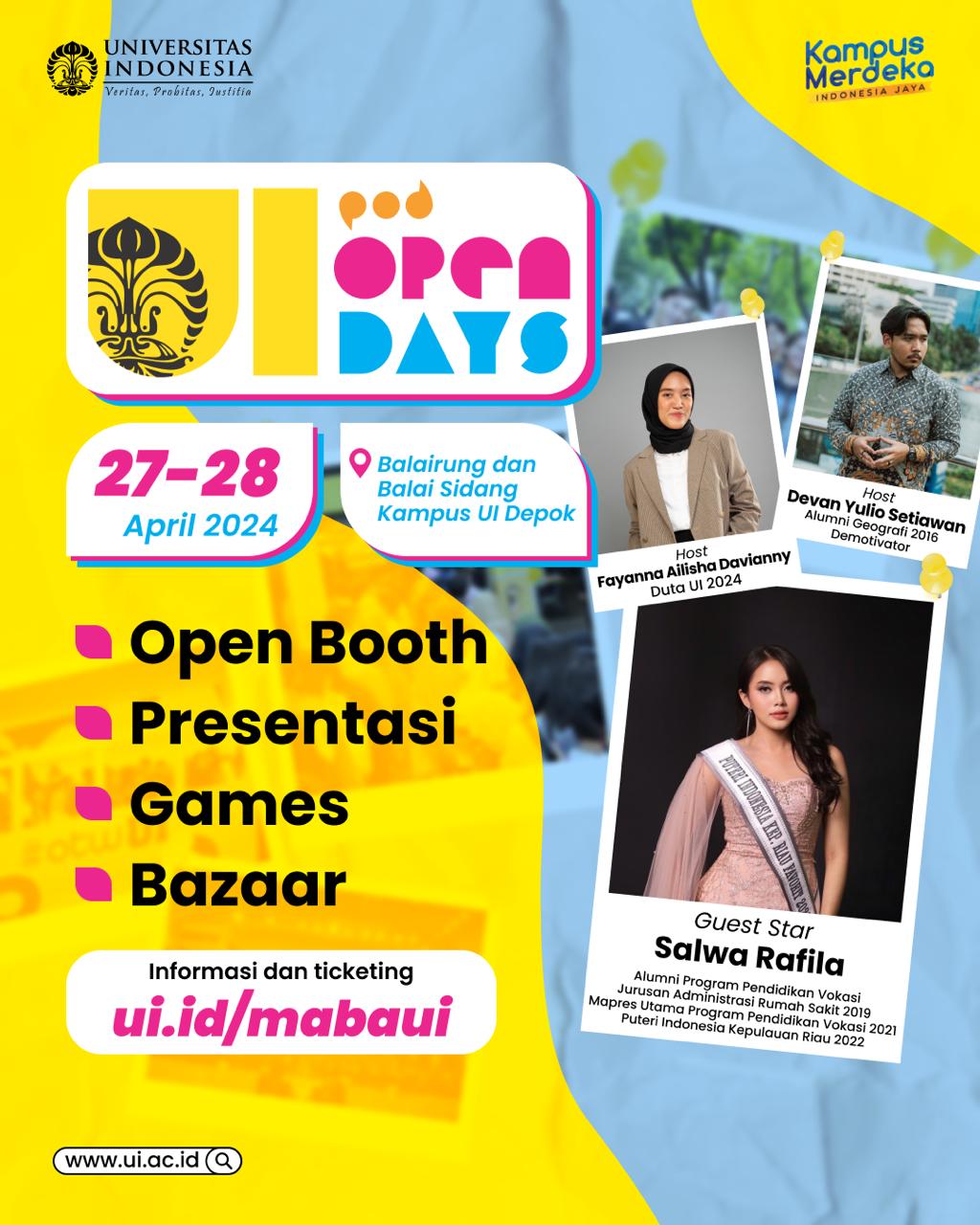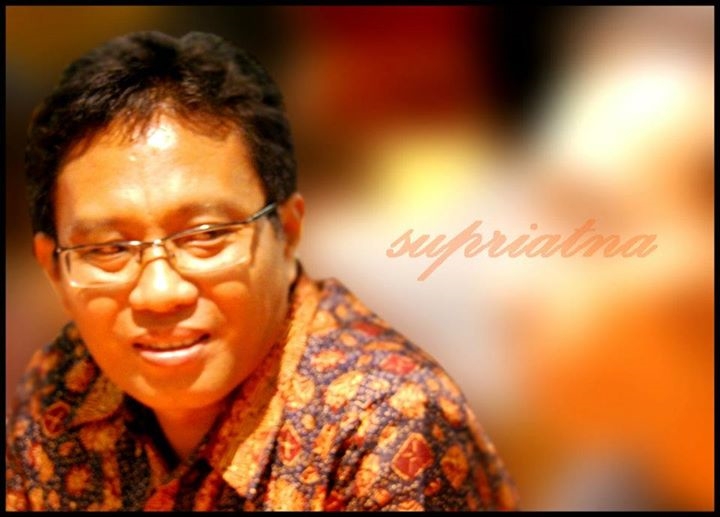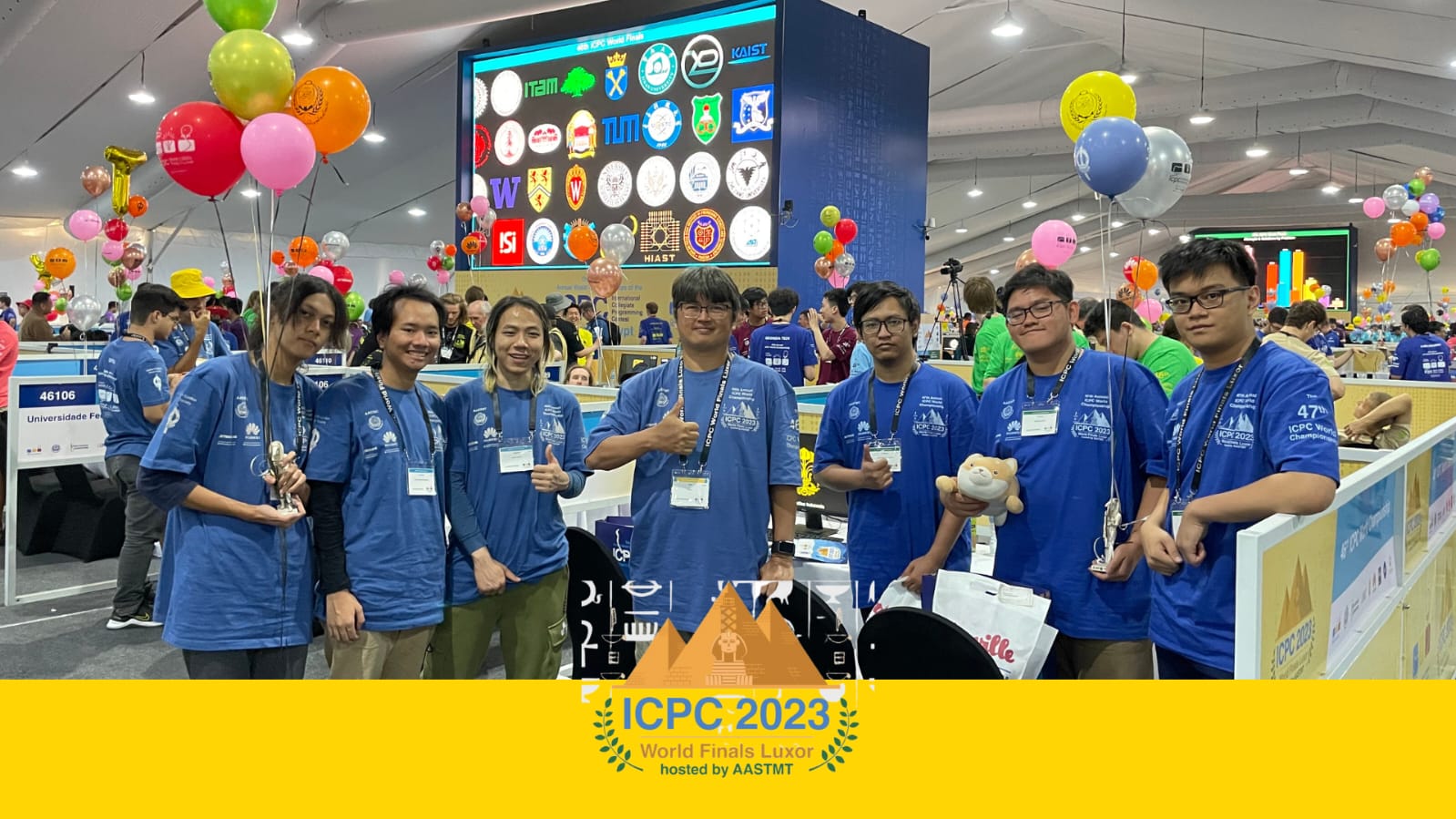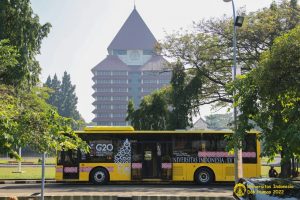
Universitas Indonesia (UI) held a symbolic handover of electric buses designed and produced by the nation to the government on Friday (10/06) with the view of supporting Indonesia’s presidency of G20. The buses are the only ones in Indonesia whose chassis platforms, electrive drive systems, brakes, control systems, inverters, dashboards, and air conditioners were entirely designed by experts from UI and manufactured by Indonesian businesses. The buses currently contain the largest proportion of domestically-produced components in Indonesia for a bus of the large class (length ca. 12 m, maximal load 16 tonne). In other words, its Level of Domestic Components (Tingkat Komponen Dalam Negeri / TKDN) is the highest.
The buses have been realised thanks to government support, through the Institute of the Development of Education Funds (Lembaga Pengembangan Dana Pendidikan / LPDP), in the form of development funds amounting to Rp12,65 billion (ca. US$850K / CN¥5.7M / JP¥115M) for the development of electric bus platforms and Rp5 billion (ca. US$370K / CN¥2.25M / JP¥45M) for the development of an electric drive system. Developments are currently complete, and UI, through one of its partners PT Mobil Anak Bangsa (MAB) is ready to commercialise the electric buses.
The buses have also gone through a process of sertification by the Ministry of Transportation. As things stand UI’s electric bus is the only large-sized bus prototype designed by Indonesian universities ready for type approval certification, and afterwards are ready to be launched in streets.
Present in the handover were the Minister of Transport of the Republic of Indonesia, Dr.(HC). Ir. Budi Karya Sumadi; the Rector of Universitas Indonesia, Prof. Ari Kuncoro, S.E., M.A., Ph.D.;Director General of Metal, Machine, Electronics, and Vehicular Industry, the Ministry of Industry, Republic of Indonesia Dr. Ir. Taufiek Bawazier, M.Si.; the Organisational Head of Energy and Manufacture Research, National Agency for Innovational Research, Dipl. Ing. Haznan Abimanyu, Ph.D.; Director of Research and Community Dedication, Ministry of Education, Culture, Research, and Technology, Republic of Indonesia, Prof. Ir. Teuku Faisal Fathani, S.T., M.T., Ph.D., IPU., ASEAN, Eng. ;and the Main Director of LPDP, Andin Hadiyanto, M.A., Ph.D. Also present were representatives of project parents: Director-President of PT MAB, Kelik Irwanto; Director of NSAD, Nur Hidayat; Gemeral Manager of Industrial Equipment and Services, PT PINDAD, Andri Setiyoso; and representatives of PT AICOOL. Representatives from various private transportation, automotive, and spare part companies were also present.

The Rector, Prof. Ari Kuncoro, stated that UI is committed to support programmes run by the goverment, and participates in lending a contribution to the grand G20 summit. “With this, UI hands over the Electric Bus to the government as one of the means of transport [to be used in] the G20 Presidency,” uttered Prof. Kuncoro. Prof. Kuncoro also suggested that electric buses are only one among many innovations created by UI researches to support national economic recovery and growth following Covid-19.
UI has contributed, through its Directorate of Research and Innovation, to the funding, facilitation of co-operation with industrial partners, procurement of infrastructure and regulation compliance facilities to researchers. Due to such kinds of support, electric buses created by UI may be bought for competitive prices of around 5 billion rupiahs (ca. US$370K / CN¥2.25M / JP¥45M), and have been made in accordance to government regulations on vehicles operating on streets. UI’s research on electric vehicles has also given birth to a technolgy startup — PT NSAD — nationally aclaimed and highly qualified in the design of electronic and control systems.
In his keynote, the Director of LPDP Andin Hadiyanto congratulated and expressed utmost appreciation to UI’s team which has managed to finish a test-ready prototype of the electric bus. “The results weren’t something instant, for they had gone through the long track of research taking more or less 10 years of undergone process and had resulted in output which [comprises] not only physical, or tangible products, but also priceless (intangible) output and outcome, among which are the [acquired] talents of researches of electric vehicles (including professors, students, and alumni), intellectual property, an increase in institutional capacity, etc.” explained Hadiyanto.
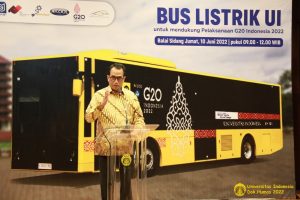
Minister of Transportation Budi Karya Sumadi mentioned the President’s Instruction on the Acceleration of Increase of the Use of Domestic Products on Government Goods/Services Procurement (Inpres No. 2 tahun 2022) aimed to promote nation-wide and provincial government spending of domestic products. This was discussed in conjunction with the captive potential of the bus market. One of those markets are that of trans-city bus networks. Many urban regional governments have run trans-city bus armadas, including Transjakarta, Trans Solo, Trans Jogja, Trans Deli, Bus Kita, etc.
Captive markets are also to be seen in airport platform buses (shuttle and transit/transfer buses); city-airport buses (currently administered by DAMRI); and state ministry/agency (K/L) buses. This holds great potential for Indonesia; the electric buses produced by UI being not only designed and manufactured domestically, but also possessing a national brand label. The government, therefore, needs to create markets and incentives for the industry, buyers, and users.
The symbolic handover was followed by a ‘joyride’: a rove around UI on one of those buses in which participants enjoyed the pleasant scenery afforded by the forests of the Depok campus. The Ministry of Transport and guests invited was given a chance to experience riding in a bus with optimal air conditioning and free of noise, not being contaminated by the heat and noise produced by the machines of typical buses.

